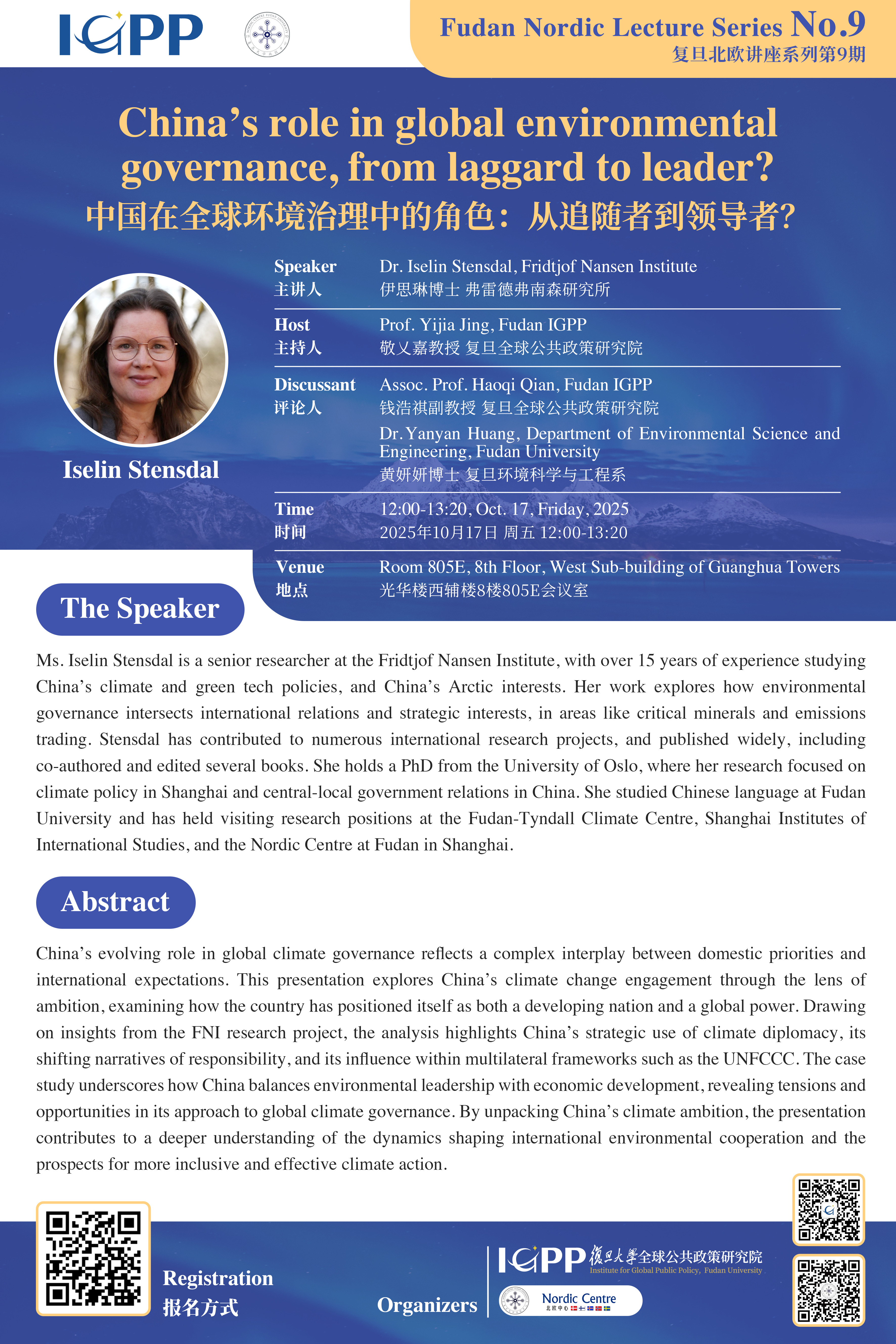
Fudan Nordic Lecture Series No.9
Title:
China’s role in global environmental governance, from laggard to leader?
Speaker:
Dr. Iselin Stensdal, Fridtjof Nansen Institute
Host:
Prof. Yijia Jing, Fudan IGPP
Discussants:
Assoc. Prof. Haoqi Qian, Fudan IGPP
Dr. Yanyan Huang, Department of Environmental Science and Engineering, Fudan University
Time:
12:00-13:20, Oct. 17, Friday, 2025
Venue:
Room 805E, 8th Floor, West Sub-building of Guanghua Towers
https://www.wjx.cn/vm/e9x3vtR.aspx#

The Speaker:

Ms. Iselin Stensdal is a senior researcher at the Fridtjof Nansen Institute, with over 15 years of experience studying China’s climate and green tech policies, and China’s Arctic interests. Her work explores how environmental governance intersects international relations and strategic interests, in areas like critical minerals and emissions trading. Stensdal has contributed to numerous international research projects, and published widely, including co-authored and edited several books. She holds a PhD from the University of Oslo, where her research focused on climate policy in Shanghai and central-local government relations in China. She studied Chinese language at Fudan University and has held visiting research positions at the Fudan-Tyndall Climate Centre, Shanghai Institutes of International Studies, and the Nordic Centre at Fudan in Shanghai.
China’s evolving role in global climate governance reflects a complex interplay between domestic priorities and international expectations. This presentation explores China’s climate change engagement through the lens of ambition, examining how the country has positioned itself as both a developing nation and a global power. Drawing on insights from the FNI research project, the analysis highlights China’s strategic use of climate diplomacy, its shifting narratives of responsibility, and its influence within multilateral frameworks such as the UNFCCC. The case study underscores how China balances environmental leadership with economic development, revealing tensions and opportunities in its approach to global climate governance. By unpacking China’s climate ambition, the presentation contributes to a deeper understanding of the dynamics shaping international environmental cooperation and the prospects for more inclusive and effective climate action.





